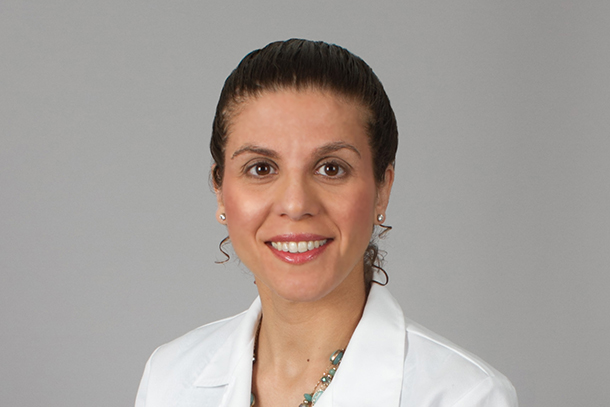The Keck School of Medicine of USC has been awarded a $175,000 grant from the DeGregorio Family Foundation and Price Family Foundation to support research aimed at gaining a deeper understanding of how gastroesophageal reflux disease (GERD) increases the risk of developing esophageal cancer.
Grant recipient Anisa Shaker, MD, assistant professor of medicine, is exploring how a certain type of cell called a myofibroblast controls inflammation, injury and repair in the esophagus.
“Myofibroblasts can be found throughout the digestive system, including the lining of the esophagus. We believe that they may play an important role in the development of esophageal cancer,” Shaker said. “This grant will allow us to adapt myofibroblasts from patients with GERD into a 3-D model of the esophageal lining, which is where esophageal cancer begins.”
GERD is a common disorder that affects up to one in five people in the United States. It occurs when the contents of the stomach back up into the esophagus and/or mouth over a prolonged period of time, which can sometimes cause tissue damage.
Having GERD can significantly increase a person’s risk for developing esophageal adenocarcinoma, the predominant type of esophageal cancer in the Western world. The risk of developing esophageal adenocarcinoma is almost eight times higher in patients with symptomatic GERD than in those who do not have GERD.
Esophageal adenocarcinoma primarily affects middle-aged or older adults and is more common in men than women. It is frequently diagnosed at an advanced stage because there are usually no warning signs or symptoms early on.
“Esophageal adenocarcinoma is the fastest-growing lethal malignancy in the West,” Shaker said. “There is an urgency to better understand how it occurs so that we can work toward preventing or curing it. The grant from the DeGregorio Family Foundation and Price Family Foundation will help us get a step closer to achieving that goal.”
The DeGregorio Family Foundation is dedicated to promoting research on esophageal and stomach cancer.
“Our hope with this grant is to spur collaboration among physician researchers that will advance their research goals and help them secure larger grants,” Lynn Gregorio, president and founder of the DeGregorio Family Foundation, said.
Since 2006, the foundation has given $2 million in grants to researchers who have gone on to obtain an additional $11 million in National Institute of Health and Star Foundation grants.
— Erica Rheinschild


